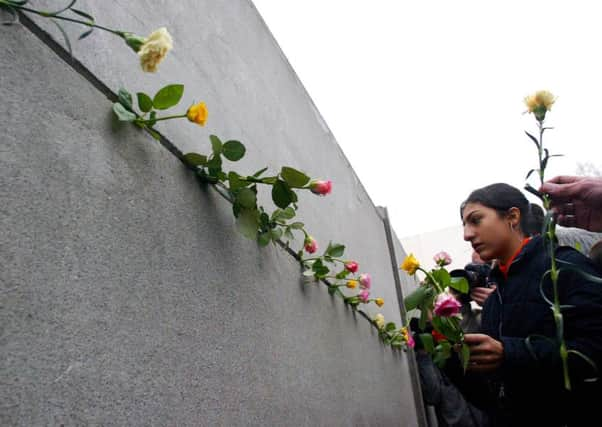Alastair Dutton: Climate change is a still a hot topic for Paris summit


I was very struck by the accounts of Gunter Schabowski’s role in the fall of the Iron Curtain. The Politburo spokesman, who died recently, announced in 1989 that travel restrictions between East and West Berlin were to be lifted, hastening the fall the Berlin Wall and the end of the Cold War.
What struck me most was that great changes, however unthinkable, do happen, often in the most unexpected ways.
Advertisement
Hide AdAdvertisement
Hide AdSo it could be at the forthcoming UN climate change summit in Paris in December. While world leaders gathering in Paris are unlikely to be able to solve the problem of climate change immediately, it’s an important opportunity for them to set a long-term course to deal with the problem.
There are lots of positive signs. The recent agreement between the US and China has seen China agree to cap its greenhouse gas emissions for the first time and the US commit to emissions reductions by 2025. This is important and those meeting in Paris need to go further.
Governments and communities around the world must ensure real and substantial change at the national, regional and local levels in the months and years ahead.
The lives of our children and future generations depend on it. The frequency and severity of floods and droughts, and more erratic weather generally, are already making the lives of poor communities in developing nations and small island states even harder.
Earlier this year I saw how money from the Scottish Government and Scottish Catholic International Aid Fund (SCIAF) supporters is helping to ensure poor families in Malawi can grow more food and adapt to the new climate challenges they face. Excellent projects like this are promoting drought resistant crops, better water management, and the creation of small businesses so people can produce enough and earn money to buy food and other essentials if their crops fail. The Scottish Government’s Climate Justice Fund is an excellent example of how richer nations can help communities in developing countries deal with climate change. Wealthier countries meeting in Paris should follow Scotland’s lead.
Recently the Bishops’ Conferences from every continent have appealed to negotiators and heads of state attending the Paris summit. The bishops, SCIAF and many others are part of a global movement pushing for an ambitious, fair and legally binding climate agreement that must put the common good ahead of national interests.
SCIAF supporters will join millions of people from Pretoria to Tokyo and from São Paulo to Madrid for a global weekend of action before the talks. Everyone is invited to make their voices heard and join Scotland’s Climate March in Edinburgh on Saturday 28 November. Many thousands will be going to Paris from around the world to show politicians how important climate change is to them.
Together, we will be urging countries taking part in the summit to rapidly cut greenhouse gas emissions to ensure the average global temperature does not increase by more than 1.5C above pre-industrial levels.
Advertisement
Hide AdAdvertisement
Hide AdThe Paris agreement must include ambitious long-term goals that decarbonise our economies. Leaders must show how the $100 billion (£65.7bn) per year promised by developed countries to help poorer countries adapt to the changing climate and develop using low carbon energy, will be raised and distributed in fair, transparent and predictable ways.
Whatever happens in Paris, it won’t include everything needed to reduce global emissions and help those in poorer countries who are already hurt by the changing climate.
Scotland has a great Climate Change Act but we need a bold and urgent plan to make sure we meet our emissions reduction targets. While important decisions will be made in Paris it will be for our governments, communities and families to deliver the change that is needed.
When asked when the travel restrictions would be lifted, Gunter Schabowski said: “immediately, without delay”. May there be the same urgency in Paris.
• Alistair Dutton is the director of the Scottish Catholic International Aid Fund
• For more information on Scotland’s Climate March visit www.scotlandsclimatemarch.org